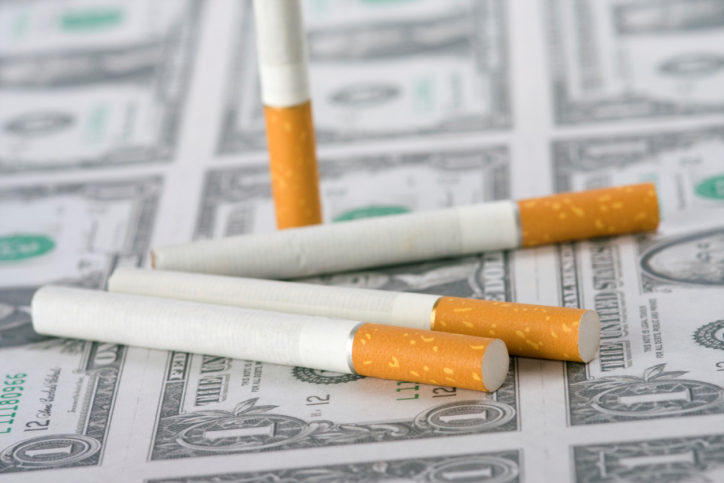Tobacco use poses well-known health risks. Smokers, on average, die earlier than nonsmokers. Estimates of lost life expectancy range from two or three years to 14 years; most researchers agree on six to eight years. A 2004 Surgeon General’s report concluded that smoking contributes to at least 16 potentially fatal conditions and dozens of other problems ranging from low bone density to complicated pregnancies.
At the federal, state, and local levels of government in the United States, public policies have been used consistently to discourage tobacco use. Imposing high taxes on tobacco products is widely used to discourage smoking. Tobacco control advocates who support very different ways of discouraging the use of tobacco products say “tax increases [should] remain a central tenet of tobacco control policies.” Some thinkers who support decreases in nearly all other kinds of taxes have expressed indifference toward or even support for increases in tobacco and other “sin” taxes.
Despite this context, it does not follow that taxes on tobacco products ought to be raised any higher than they are. Taxes on tobacco products already are so high in most places that legislators in the U.S. should be skeptical of proposals to increase them any further. In some cases and in some places, it is possible that some legitimate public health goals might be advanced through higher or different kinds of taxation, but the bulk of the evidence argues against further increases in tobacco taxes.
Anyone considering a proposal to increase tobacco taxes should recognize the following five realities with significant support in the academic research on tobacco control:
- Current costs imposed on smokers – the costs they impose on themselves, as well as the costs imposed by government – typically exceed the social costs of smoking.
- Tobacco taxes place a much larger burden on lower-income people than on the well-off.
- Tobacco tax increases are not necessarily the best way to discourage smoking.
- Black markets for cigarettes develop as taxes rise.
- Tobacco taxes often produce less revenue than expected and sometimes reduce revenue overall.
Read more of this new Heartland Institute Policy Brief here.




